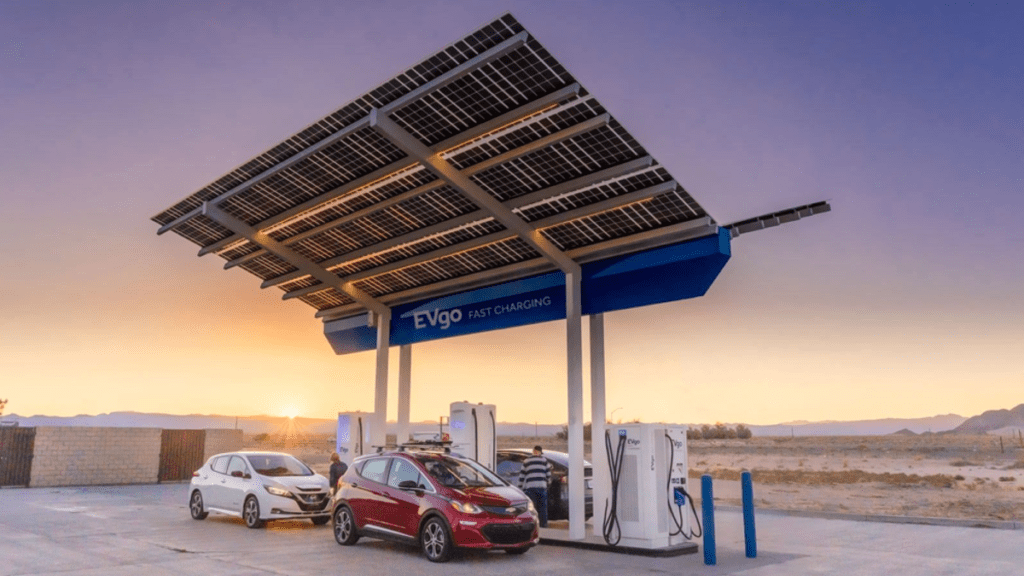Fossil Fuel-Funded Think Tank Claims Electricity Costs $17 Per Gallon

The Texas Public Policy Foundation, a conservative organization funded at least in part by Chevron and ExxonMobil, recently published a paper condemning the production and purchase of electric vehicles on the basis that they’re socialist nightmare garbage or whatever. The paper asserts that the true cost of electric cars is obscured by government subsidies, credits, and incentives. The crux of the paper the argument, which conservative writers parrot uncritically, claiming that when all costs are accounted for, “the true cost of fueling an EV would equate to an EV owner paying $17.33 per gallon of gasoline.”
2023 Range Rover Sport | Quick Drive
The study claims that a model year 2021 electric vehicle, on average over its ten year lifespan, is missing out on some $16.12 in hidden costs per “gallon.” TPPF’s claim is that the EV buyer isn’t paying for the charging infrastructure costs, transmission and distribution costs for the electricity grid, and those costs are being shoved off onto “taxpayers.” I assume they think EV buyers don’t pay taxes? There are additional costs — which they’ve somehow quantified with a dollar value — for EPA greenhouse gas emissions standards and CAFE credits. Because the government is mandating improved fuel economy and gas cars are more expensive to buy and fuel, this is somehow a subsidy for charging costs.
Screenshot: Texas Public Policy Foundation
Look, it’s true that there are distributed government costs that make owning an electric car more palatable. That’s the point of subsidies and incentives, to make buying choices less painful. Buyers are highly motivated by pain points. Sure, some portion of your taxes go toward accelerating the proliferation of electric vehicles. Maybe that money is going to an automaker for building a new factory to build EVs and provide jobs for a community. Maybe that money is going to someone buying a new Chevy Bolt instead of hanging on to their old broke-down beater. Maybe government incentives are intended to drive increased purchases or accelerate purchasing trends, creating new tax revenue streams in the process.
The world is so inter-connected these days that it can’t ever possibly be boiled down in a simple exact numbers kind of way. There are hidden or defrayed costs to buying an electric car, but that’s true of gasoline cars as well. Could I argue that oil and gas costs are subsidized through maintained military deployments in oil-rich nations or the U.S. Navy guarding oil shipping lanes? Absolutely I could. There are always invisible costs to everything you buy. This paper actively glosses over the hidden cost of fossil fuels with outright lies. Like this one:
When we pay for a gallon of gasoline, we are paying for the entire infrastructure to refine, transport, and market that gasoline. When an EV owner connects to the electric grid, how much are they paying for the extra generation, transmission, and distribution costs that they are imposing on the grid, and will those embedded costs rise over time?
A gallon of gasoline is directly subsidized in a number of ways. Some estimates indicate the American taxpayer populace is spending around 20 billion dollars per year in direct fossil fuel subsidies. Not to mention the government is among the largest customers for fossil fuels, fueling everything from U.S. Postal Service trucks to military transport vehicles. There are economies of scale in the production cost of oil extraction and refinement.
The national security costs of reliance on foreign oil are extremely expensive indirect subsidies to internal combustion engine cars. The health and medical costs of poor air quality are some pretty huge hidden costs to gas and diesel vehicles. Is it potentially unfair to lay the trillions of dollars spent on the Iraq and Afghanistan conflicts or the advancing costs of an increasingly asthmatic American people at the feet of gas cars? Certainly, but there are tax-funded military costs that benefit gas car buyers.
This paper was written by Brent Bennett and Jason Isaac, both members of Life:Powered, the Texas Public Policy Foundation’s energy policy influence wing. The organization’s website has published pearl-clutching articles about the perils of investing in green energy, published a series of lesson plans to extol the virtues of coal and natural gas to kindergartners, uses nonsense words like “clean coal”, and unsubstantiated claims that offshore wind turbines are killing whales. Maybe don’t take what they have to say at face value.



